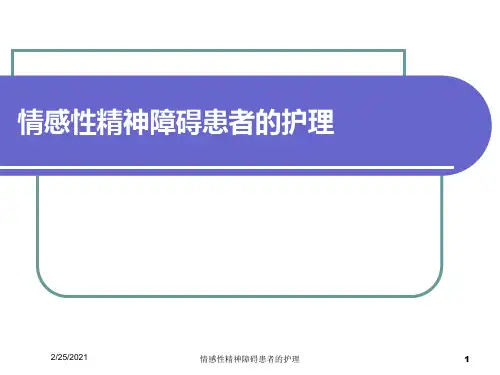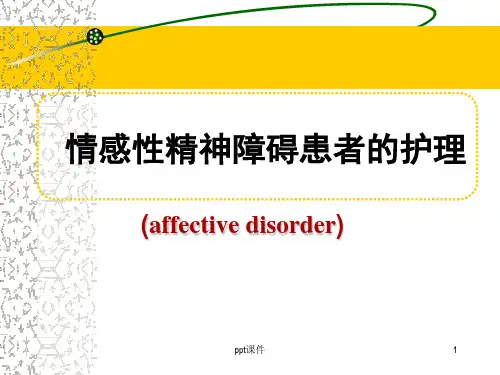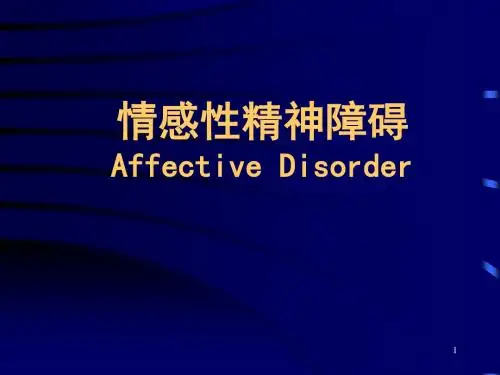第九章 情感性精神障碍病人的护理
2018/11/26
心理学的基本问题
1
第一节 概述
概念及特征 分类及流行病学特点 病因与发病机制 治 疗
2018/11/26 心理学的基本问题 2
概念
情感性精神障碍(Affective Disorders)又称心境障碍 (Mood Disorder),是以显著而 持久的情感或心境改变为主要特 征的一组功能性疾病。临床上主 要表现为情感高涨或低落,伴有 相应的认知和行为改变,可有精 神病性症状,如幻觉、妄想。
2018/11/26 心理学的基本问题 6
病因与发病机制
(一)遗传因素
1.家系研究 情感性精神障碍病人中, 有家族史者为30%~41%。血缘关系 越近,患病率越高。 2.双生子研究 国外研究发现单卵双 生的同病率为56.7%,而双卵双生 为12.9%,但遗传方式尚不清楚。
2018/11/26 心理学的基本问题 7
2018/11/26 心理学的基本问题 13
第二节
常见情感性精神障 碍病人的护理
躁狂发作病人的护理 抑郁发作病人的护理 其他类型情感障碍病人的临床 特征及护理
2018/11/26
心理学的基本问题
14
CLLNICAL EXAMPLE
“Hi! I’m mself, back to the wall, confronted by a man 6 feet 6 inches tall who has fidgeted through the last 15 minutes of a group on an inpatient unit. The group was designed for significant others who needed to know about the origins and treatment of depression. “Kevin 254” had arrived 45 minutes late and noisily found a chair. Unfortunately, during the last 15 minutes of the group everybody was distracted by Kevin’s behavior and left almost immediately after the session ended. “Nice tie!” says Kevin to Jone, as he not so gently grabs it and pulls it to his face to inspect it more closely.







